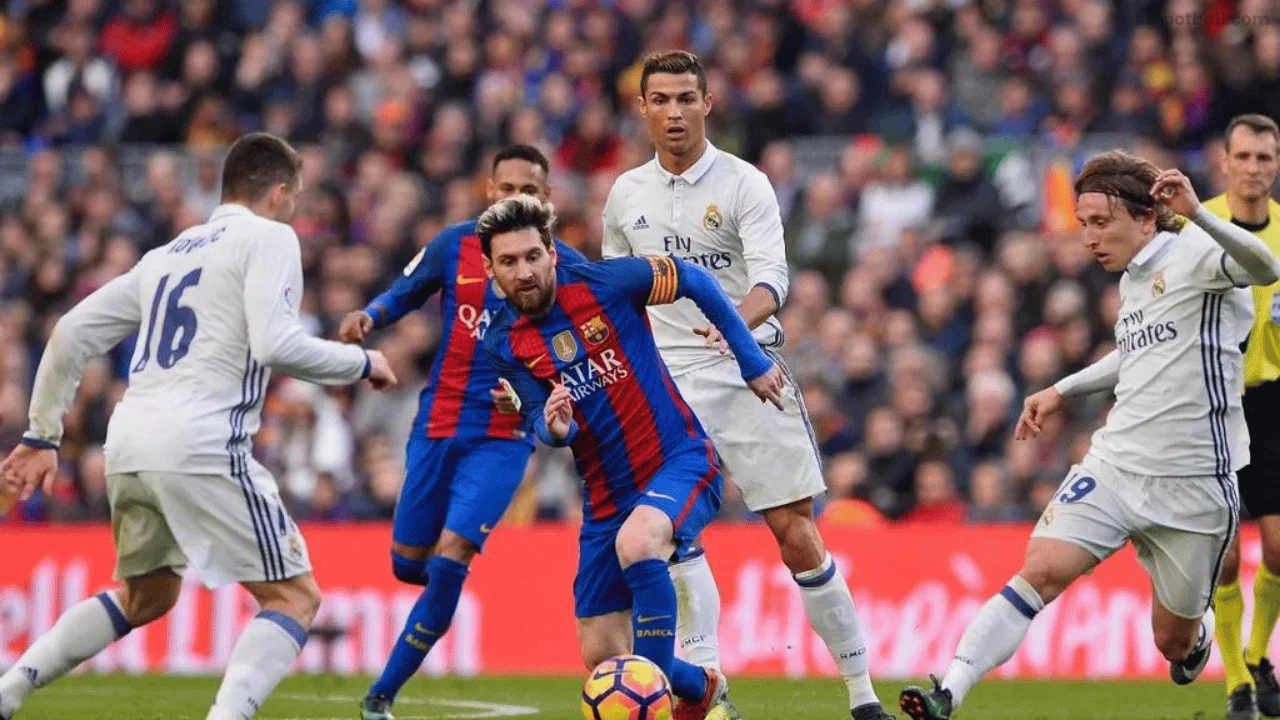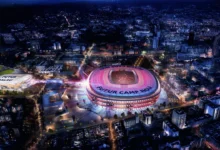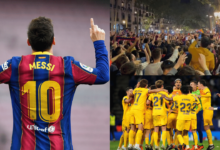The Complete History of El Clásico: FC Barcelona vs Real Madrid Rivalry

Few football matches capture the imagination of the world quite like El Clásico—the fierce rivalry between FC Barcelona and Real Madrid. This rivalry transcends the football pitch, symbolizing historical, political, and cultural tensions between Catalonia and Spain. Beyond the history, it is also a sporting spectacle that has featured some of the greatest players ever to grace the game, from Alfredo Di Stefano and Johan Cruyff to Lionel Messi and Cristiano Ronaldo.
Table of Contents
In this article, we’ll dive into the complete history of El Clásico, exploring its origins, memorable matches, iconic players, and how the rivalry has evolved into one of the most anticipated fixtures in world football. Whether you’re a die-hard football fan or someone who casually watches the sport, El Clásico is a game that encapsulates passion, skill, and drama like no other.
The Origins of El Clásico: More Than Just Football
The first official El Clásico was played in 1902, in the semi-finals of the Copa de la Coronación, a competition that eventually evolved into what we know today as the Copa del Rey. Barcelona emerged victorious in that match with a 3-1 win. However, it wasn’t until the 1950s, during the Franco dictatorship, that the rivalry between these two Spanish giants became politically charged.
Real Madrid, backed by the Spanish government under dictator Francisco Franco, was seen as a symbol of Spain’s centralist power. Meanwhile, FC Barcelona represented Catalan identity and resistance against Franco’s regime. This gave rise to a rivalry that was not just about football, but about what the two clubs stood for politically and culturally.
The Era of Di Stefano: Real Madrid’s Domination
One of the pivotal moments in the early years of El Clásico came with the signing of Alfredo Di Stefano. Both Real Madrid and Barcelona were vying for his signature in the early 1950s, and his eventual move to Madrid set the tone for decades of intense competition.
During Di Stefano’s time at Real Madrid, the club began to dominate not just Spanish football but European football as well. Madrid won an astonishing five consecutive European Cups from 1956 to 1960, and Di Stefano was at the heart of their success. His arrival at Real Madrid marked a period of dominance in El Clásico, with the Madrid club often getting the better of their Catalan rivals.
The Johan Cruyff Revolution: Barcelona Fights Back
The balance of power began to shift in the 1970s, particularly with the arrival of Dutch legend Johan Cruyff at Barcelona. In his first season with the club in 1973-74, Cruyff led Barcelona to a stunning 5-0 victory over Real Madrid at the Santiago Bernabéu, a result that shocked Spain and the footballing world.
Cruyff’s impact on Barcelona was not just as a player. When he returned as a coach in the late 1980s, he implemented the “Total Football” philosophy, which laid the groundwork for the modern Barcelona style of play—possession-based, attacking football. This philosophy became the backbone of Barcelona’s La Masia academy, producing future stars like Xavi, Iniesta, and Lionel Messi.
The Galácticos vs Messi’s Barcelona: The Modern Era of El Clásico
The early 2000s saw another phase in the evolution of El Clásico, with Real Madrid adopting the Galácticos policy—a strategy of signing world-class players such as Zinedine Zidane, Luis Figo, Ronaldo Nazário, and David Beckham. This period of Real Madrid’s dominance coincided with a resurgence in Barcelona, which was led by their own set of superstars, including Ronaldinho, Samuel Eto’o, and, later, Lionel Messi.
One of the most iconic moments of this era came in the 2005-06 season, when Ronaldinho received a standing ovation from the Santiago Bernabéu crowd after leading Barcelona to a 3-0 victory with an incredible solo performance. This was a rare moment in football history where a rival player was applauded by the opposition’s fans.
Messi vs Ronaldo: The Battle of the Century
From 2009 to 2018, the rivalry between Barcelona and Real Madrid reached new heights, thanks in large part to the individual rivalry between Lionel Messi and Cristiano Ronaldo. Both players are widely regarded as two of the best footballers of all time, and their head-to-head matchups in El Clásico are the stuff of legend.
During this period, El Clásico became a global spectacle, watched by millions of fans across the world. The matches were often filled with drama, incredible goals, and high stakes, with the La Liga title or Champions League progression frequently hanging in the balance.
One of the most memorable moments in recent El Clásico history came in the 2017 Spanish Super Cup, where Ronaldo scored a stunning goal and mimicked Messi’s famous shirt celebration from a previous El Clásico, where Messi held his Barcelona jersey aloft in front of the Bernabéu crowd after scoring the winning goal in a 3-2 victory. This back-and-forth battle between Messi and Ronaldo added an extra layer of intensity to an already fierce rivalry.
Key Matches in El Clásico History
Over the years, there have been several historic El Clásico matches that have cemented the rivalry’s place in football folklore:
- Barcelona 5-0 Real Madrid (1974) – Johan Cruyff’s Barcelona demolished Real Madrid at the Bernabéu, symbolizing a shift in power.
- Real Madrid 2-1 Barcelona (1980) – This Copa del Rey final victory was especially sweet for Madrid as they lifted the trophy in their rival’s city.
- Barcelona 0-3 Real Madrid (2002) – Zidane’s Galácticos crushed Barcelona in their own stadium, with the club’s fans jeering their team off the pitch.
- Barcelona 6-2 Real Madrid (2009) – Pep Guardiola’s Barcelona dismantled Real Madrid at the Bernabéu, a match that many consider one of the best performances in El Clásico history.
- Barcelona 5-0 Real Madrid (2010) – Another dominant performance from Guardiola’s side, marking Barcelona’s complete dominance over their arch-rivals.
The Impact of El Clásico Beyond Football
El Clásico’s significance goes beyond the pitch. For many fans, the match represents more than just a football game; it symbolizes the ongoing cultural and political divide between Catalonia and Spain. Barcelona, with its Catalan identity, stands as a symbol of resistance and independence, while Real Madrid is often seen as representing the Spanish establishment.
Throughout history, the match has been intertwined with Spain’s political landscape. During the Franco era, Real Madrid’s dominance was often seen as a reflection of the regime’s power, while Barcelona’s victories were a form of symbolic defiance.
Conclusion: El Clásico’s Place in Football History
El Clásico remains the pinnacle of club football, capturing the hearts and minds of millions worldwide. The rivalry between FC Barcelona and Real Madrid is unparalleled in terms of history, passion, and global appeal. Whether it’s a clash of playing philosophies, the emergence of new stars, or the memories of past encounters, every El Clásico offers something special.



